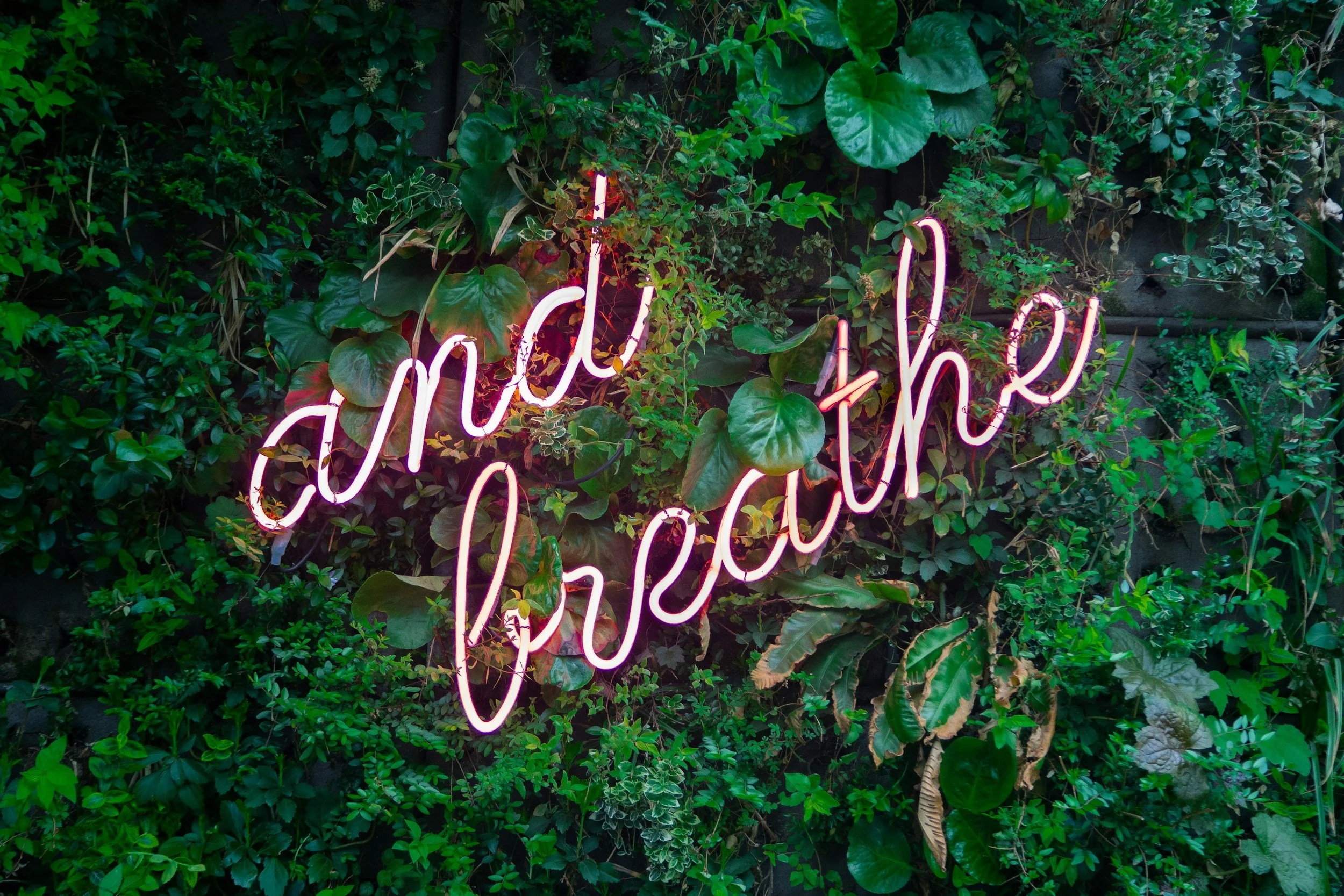Strategies for managing stress: tips and reflections
Feeling overwhelmed? Here are some tips for managing stress
Today I’m sharing some reflections on managing stress. Stress is a normal part of life and something we all experience at one time or another. Whether it’s the demands of work, personal responsibilities, social commitments or simply navigating a complex and uncertain world. It can be easy to feel like you’re running on empty. Even the things you want to be doing, exciting projects, new opportunities or major life changes can quickly become overwhelming. If you're feeling stretched thin, you are absolutely not alone.
If you’re new here I’m Laura, a counsellor, nature therapist, and somatic trauma therapist. My work is centerd around guiding people back into relationship with themselves, with their bodies and with the wider natural world.
Stress is a normal part of life and something we all experience at points. Whether it’s the demands of work, personal responsibilities, social commitments or navigating a complex and uncertain world. It can be easy to feel like you’re running on empty. Even the things you want to be doing can quickly become overwhelming. If you're feeling stretched thin, you are absolutely not alone.
It's important to remember: not all stress is bad. In fact, certain types of stress (often called “eustress”) can help us stay motivated and push through big life events. But ongoing or chronic stress can take a toll on our physical and mental health, which is why it’s so valuable to have tools in place to help you notice and manage it effectively.
I’m sharing some gentle, practical strategies to help if you're feeling stressed or overwhelmed below. Before I do, it feels important to mention the role that the nervous system plays in our stress response. The Polyvagal Ladder is a framework created by Deb Dana, drawing from Dr. Stephen Porges’s polyvagal theory. It offers a practical way to understand how our nervous system responds to different levels of safety, stress, and perceived threat. Rather than being in one fixed state, our system shifts depending on how secure or vulnerable we feel in any given moment. If you're curious about how these shifts affect mental health and emotional wellbeing, you can explore more about the nervous system’s role here.
Understand the mechanics of your stress
The Polyvagal Ladder, developed by Deb Dana from Dr. Stephen Porges’s Polyvagal Theory, describes how our nervous system constantly gauges safety. Depending on whether we feel safe or threatened, whether that’s real or perceived, our body shifts into different physiological states. These shifts influence everything from our emotions and relationships to focus, digestion, and immunity. The stress response is very often a shift into a fight-or-flight state. Understanding this process helps us better support both mental and physical wellbeing. You can learn more here.
Know that very often stress occurs because we weren’t meant to live like this
Much of the stress we experience today arises from living in ways our bodies and nervous systems were never designed for. Constant stimulation, disconnection from nature, and the pressure to stay productive leave us in a state of chronic activation. Throw in the oppression that we experiences if we have marginalised aspects of our identity, and the fact that the world seems to be more on fire with each passing week, and it’s no wonder it all feels like it’s a lot. At our core, we were meant to live in rhythm with natural cycles, resting, connecting and moving at a human pace. Remembering this can help us to remember that stress isn’t a personal failure.
Pace yourself
Burnout often doesn’t begin with exhaustion, it begins with excitement. If you’re someone who gives everything 150% it’s easy to burn through your energy reserves quickly. Instead, consider taking a more sustainable approach. Set realistic goals, build in breathing space, and allow time for rest, play, and joy. You don’t have to sprint the whole marathon.
Ask yourself:
What’s truly urgent right now?
Can I scale back without compromising the outcome?
Where can I schedule intentional downtime?
Be mindful
Mindfulness is a bit of a buzzword but it’s also a scientifically backed way to manage stress and regulate emotions. Increasingly I’m focussing my work with clients on the somatic approach to being present. Somatic therapy focuses on the body’s sensations and responses rather than just the story of our experiences.This can involve tuning into subtle body cues, regulating the nervous system, and cultivating presence in the moment. You can check out deeper reflections on somatic approaches, along with a practice to try, here.
In the book Why Zebras Don’t Get Ulcers, author Robert Sapolsky describes how animals release stress through movement, just like when a dog shakes after an intense moment. Humans can benefit from this too! Physical movement, even just a few minutes, helps release stored tension in the body. Turn up the music and dance around the living room. Take a brisk walk. Stretch. Shake it off in whatever way feels right to you. It’s not silly, it’s science.
Ask for help
We live in a culture that often celebrates independence and overwork, but the truth is, humans are wired for connection. We’re not meant to go it alone. Whether it’s reaching out to a friend for a chat, leaning on family, or getting support from a professional, asking for help is a strength not a weakness. Remember: everyone has moments when they need a hand. Don’t wait until you’re drowning to call out for a lifeline. If you’d like to explore the role counselling and therapy could play in supporting you, head here.
Make space by dropping the right plates
You’ve probably heard the phrase “spinning a lot of plates” and let’s be honest, sometimes it feels like they’re all about to come crashing down. It can help to think of those plates as being made from different materials. Some are glass: non-negotiables like your health or critical responsibilities. Others are rubber: they can bounce if dropped. Give yourself permission to let go of the non-essentials. You can pick them up again when life slows down.
Take a break
When the pressure's on, it’s tempting to keep going and going, and going. But pushing through nonstop is counterproductive in the long run. Your brain and body need rest to function well. Rest is productive. Joy is productive. Breaks aren’t a reward for finishing, they’re a tool that helps you keep going. Plan them in as you would any other priority.
Take in the good
Our brains are wired to focus on what’s wrong. This is called the negativity bias. That means even when good things are happening, we might not register or remember them as strongly. To counter this, try consciously savouring positive experiences when they happen. The next time you notice something uplifting; a kind word, a moment of laughter, a beautiful sky, pause. Take 20–30 seconds to let the feeling sink in. Do this a few times a day and, over time, your brain starts to notice more of the good.
Final thoughts on managing stress
Stress is part of being human but it doesn't have to run the show. By learning to tune in to your stress levels, pace yourself, connect with others, and find moments of calm and joy, you can build resilience and feel more in control, even during challenging times. Small, consistent changes often make the biggest difference when managing stress. Start with what feels doable today, and know that you’re not alone in this.
For other resources that you could explore to support you, check out these posts:
Navigating polyvagal theory for nervous system stability
How can I improve my mental health? A therapist’s guide
Connecting with self-compassion in times of struggle



